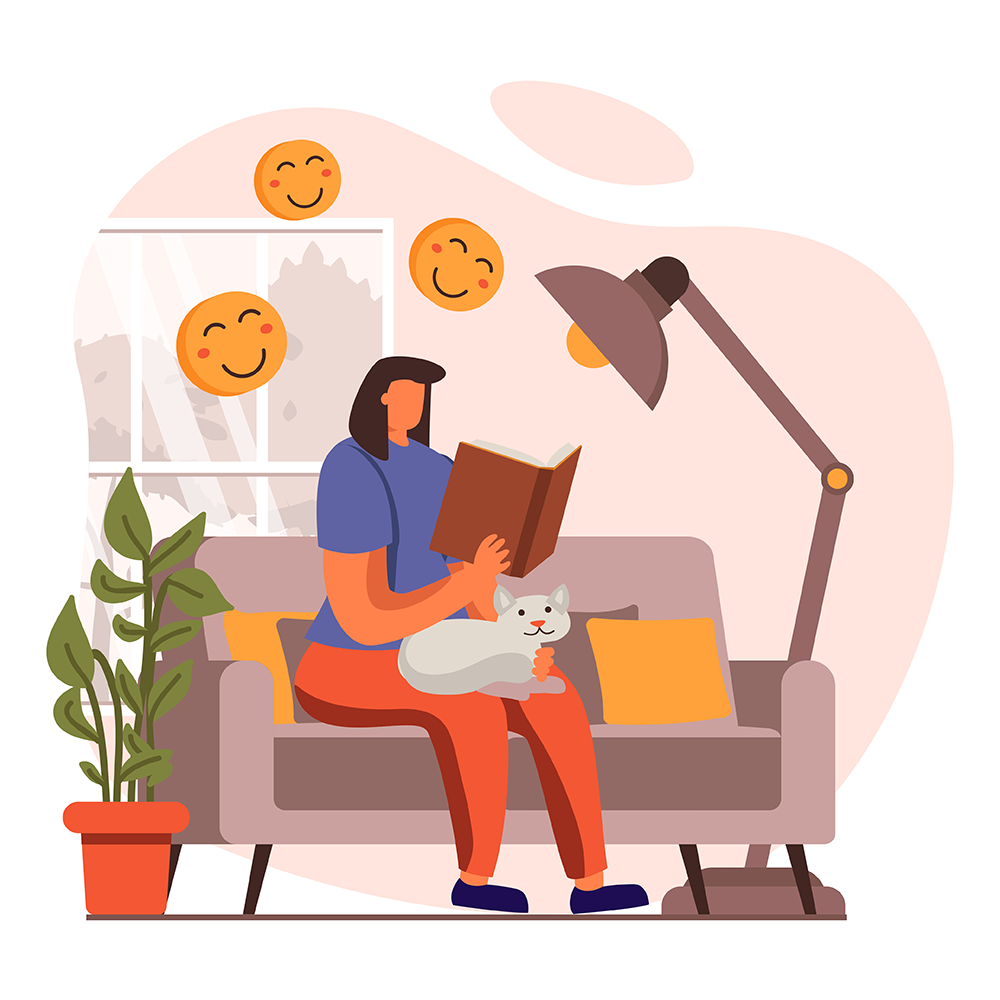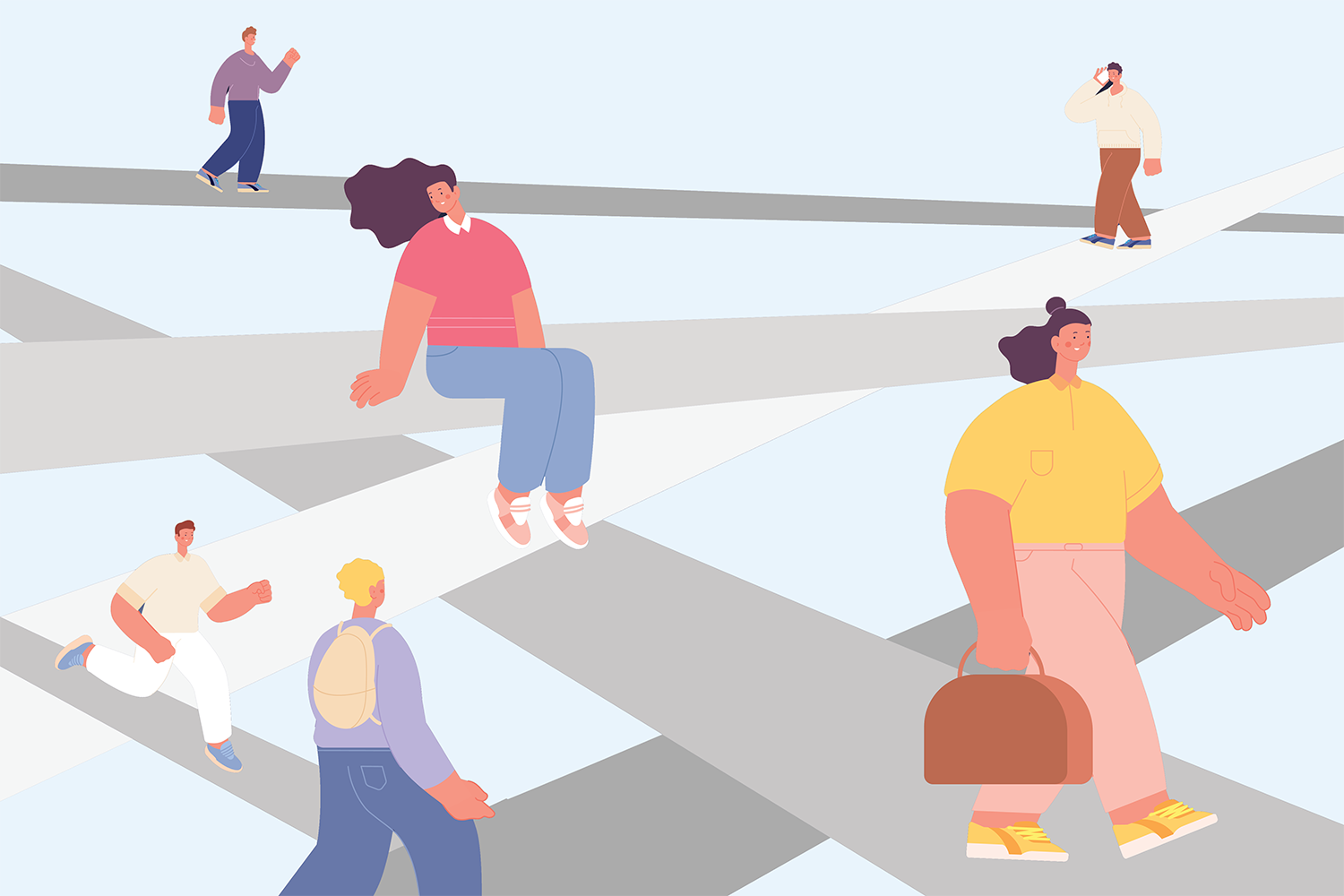Anne T. Donahue: It’s Time to Re-Claim Laziness

Like many Millennial women, I’ve spent most of my adult life equating my self worth with my productivity. And while I’ve broken a few old habits in my career as a freelance writer—like tracking a list of all the pieces I’ve ever written, or working along to The Social Network soundtrack—I still struggle with the guilt of not being perpetually busy. This is partly because I need to be: I pay to go to university, I pay bills and I’ve got no generational wealth to fall back on. So when I’m not actively trying to make money or get ahead on assignments, I feel like I’m wasting my time. And time is money, after all (even if I inevitably end up staring at a blank Google Doc, writing and re-writing the same sentence).
Yet while that guilt pushes me to respond to (most) overdue emails, it’s also sucked the joy out of being alive. None of us are meant to be on 24/7, yet rhetoric around professional boundaries (and even resting) translates into laziness. A pejorative term, despite it being a vital means of self-preservation.
Here’s the thing: We need to be lazy.
This revelation isn’t radical, nor is it mine: Thanks to the epidemic of burnout, Gen Z women in particular have begun embracing the anti-work, “lazy girl” movement, in which their work life—pared back, freed of all notions of morality associated with it, recast as simply a means to an end—leaves enough room to socialize, to engage in extracurriculars and even—gasp!—to rest. Defined by its participants as an example of work-life balance, “lazy girl jobs” aren’t strenuous, soul-sucking or all-consuming. Instead, they’re a means of minimal involvement in a system that left Millennials collapsing in on themselves. “Lazy-girl jobs” are paid positions in which employees simply go to work, make a decent salary and then leave their jobs behind at the end of the day. Think: social media management, content curation and even (some) freelance writing. (But I won’t take that personally.)
Related: Move Over Quiet Quitting, We’re Loud Quitting Our Jobs Now
For so long, employees have been held to unrealistic standards and it’s damaging to our mental health. Hustle culture, which criticizes one’s need to rest, stigmatizes a necessary component to a healthy lifestyle, and it suggests that anybody experiencing symptoms of exhaustion, depression, physical illness or any other symptom of burnout is simply making a choice. (Yet anyone who’s also waded through quicksand of anxiety or ADHD-related fatigue knows that even getting up in the morning can be a genuine triumph.) The traditional dichotomy between “lazy” and “productive” fails to leave enough room for the full spectrum of living a life.
And we know better. We know that everyone’s grappling with their own set of challenges, much like we know that associating one’s value with their professional worth is profoundly damaging.
Thankfully, these are the types of conversations we’re starting to see more of, especially since Millennial women in particular (hi!) are realizing the relationships we’ve formed with work—the leaning in, the girl-boss aspirations, the “having it all”—is a prison of our own making. And since the idea of professional worth is rooted entirely in capitalist norms, it only benefits a much larger system if someone keeps going and going without a break.
By early 2020, I began to hate (hate) my job as a writer. I hated having deadlines, I hated edits and I hated that I’d parlayed something I loved into my sole source of income. Mostly, I hated that I’d created working relationships that lacked any boundaries: I was available all the time, I ate at my desk despite working from home and I’d push myself to finish pieces that editors would have gladly given me a few extra time on. My solution? To be “lazy.” I stopped working so much at night. I asked for deadline extensions if I needed them. And sometimes, I’d take a late-afternoon power nap.
Related: Ask a Recruiter: ‘Have I Been Tricked into a Quiet Promotion?’
But boundaries are not lazy, taking a day off isn’t lazy, and not writing back to an email immediately isn’t lazy, either. Learning to rest—to reclaim the notion of “being lazy”—gave me the necessary space to recharge and re-evaluate what I wanted to do. Those valuable extra hours of nothingness gave me a chance to realize that I still loved writing, I just hated what I’d turned it into. They also gave me the space I needed to think about what I wanted to do in addition to the job I had, which ultimately led me back to school.
Not that I was in it alone. Perhaps an indication of the mental health crisis infringing on the lives of more and more young professionals, I noticed that when I began honouring my own mental health (by taking time to eat lunch, to see friends or to catch up on Deux Moi), it became easier to create work-life boundaries and to slowly separate myself from the productivity monster I’d created. Laziness became a lifeline.
Which isn’t to say that I’ve completely surrendered to being lazy, or that I’ve freed myself from feeling bad about, well, most things. However, I’ve learned that absence makes the heart grow fonder. This is as true of work as it is of some people. In my case, I learned that mastering the art of doing nothing (or nothing that could be deemed professionally or academically productive) has become a movement for a reason. Rest is important. Laziness isn’t a crime. Instead, it’s the key to staying in love with what you do, or learning what you’d love to do next. It’s also one of the best ways to remind yourself how much fun you can have simply being alive.









